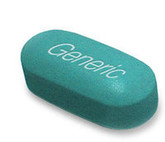Generics/Research
|
Posted 15/03/2013
Trying to reduce expenditure on medicine is a major driving force for reforms by many governments. This includes Austria, where measures have been introduced to lower generics prices and enhance their use. However, the situation for newer antidepressants and atypical antipsychotic medicines (AAPs) is different to proton pump inhibitors (PPIs) (anti-reflux), statins (cholesterol-reducing), and renin-angiotensin inhibitor (blood-pressure reducing) drugs. For antidepressants therapy, it is more often tailored to meet the patient’s needs and there is resistance to switch products in stable patients.























